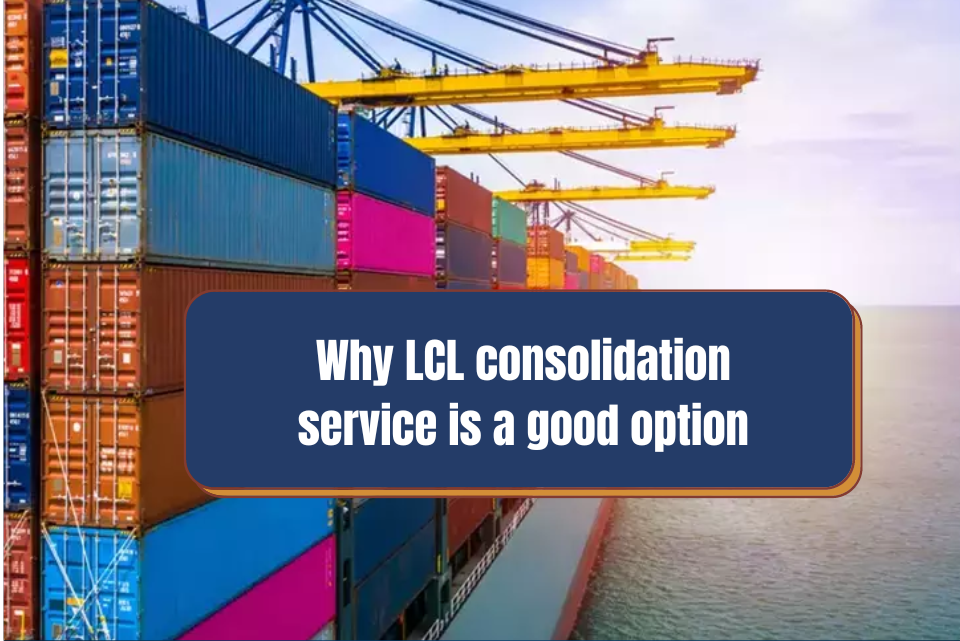LCL consolidation is transporting less-than-container-load cargo from an inland container depot to a designated ‘hub’ terminal under customs seal, usually in a domestic container. The sealed containers are opened at the designated hub terminal, and the cargo is reworked on a destination-by-destination basis without needing to be re-examined by customs. The LCL hub terminals were also certified by Indian Customs, so LCL cargo can only be reworked at these ports.
The first step is to locate a freight forwarder who provides LCL consolidation services. After you’ve selected a handful, you’ll need to get each quote and compare the rates and services. You will communicate with your freight forwarder to set a pickup time for your shipments when you have chosen one. Once the items have been combined, they will be transported to their final destination as a single cargo.
LCL shipping is the most adaptable method of transporting more miniature, less time-sensitive goods between important ports worldwide. Less than Container Load shipping is a versatile service that can handle anything from a single parcel to a large consignment, with the advantage of shipping your goods as soon as they are ready rather than waiting for a full container load. This enables you to send your product faster, more frequently, and with better scheduling. Customers also benefit from lower shipping costs for smaller LCL volumes.
LCL consolidators are becoming increasingly popular for firms to save money on ocean freight. When selecting an LCL consolidator, expertise is the first and most significant criterion to examine. Dangerous commodities, one-of-a-kind products, and delicate freight necessitate careful management. Furthermore, the consolidator must be aware of several directions of this cargo, and this knowledge is necessary for the shipment to be safe. As a result, before hiring an LCL consolidator, inquire about their experience.
Consolidators are highly scalable and can keep up with rising packing and shipping demands, guaranteeing that the cargo is delivered on time to the consumer. An LCL consolidator who receives the load from various forwarders can consolidate the LCL container faster, resulting in more efficient shipping. This efficiency is necessary for the goods to be left at container freight stations until the container is complete, and this can cause shipment delays.
Consolidating LCLs can help you improve your customer service. Shipment consolidation might help you provide better customer service and faster delivery. Consolidation from door to door is more expensive than consolidation from port to port. However, the benefits of door-to-door delivery outweigh the costs. Shippers and consignees can connect directly through door-to-door services, saving time and money. Furthermore, door-to-door services allow shipment tracking and give a greater level of customer support.
The shipment is picked up at the port of origin and delivered to the destination port by port-to-port service. While port-to-port consolidation services are less expensive than door-to-door services, they have significant drawbacks. In port-to-port services, you cannot trace the shipment. When multiple tiny shipments are shipped simultaneously, they might be challenging to track—consolidating your shipments results in a single tracking number for the entire package, making it easier to keep track of your goods.
You can also order from providers who would not ordinarily sell minimum quantities overseas by combining cargo. Experienced LCL consolidators handle the entire process, from consolidating supply orders to taking delivery, documentation, shipping, and delivery, making shipments a snap for smaller businesses and allowing them to focus on other business activities.
Companies can avoid maintaining big warehouses or storage inventories by regularly sending smaller quantities of items with weekly LCL shipping, reducing procedures, and enhancing efficiency through an adaptive list. LCL consolidation also enables enterprises to enter new markets and test their viability by shipping lesser quantities for first sales rather than a full container’s worth, mitigating risks and expenses that may arise if sales are lower than planned.
LCL shipping assists in catering to respective markets based on demand and supply while minimizing the risk of cargo storage for long periods, cargo expiry dates, and cash flow management.



